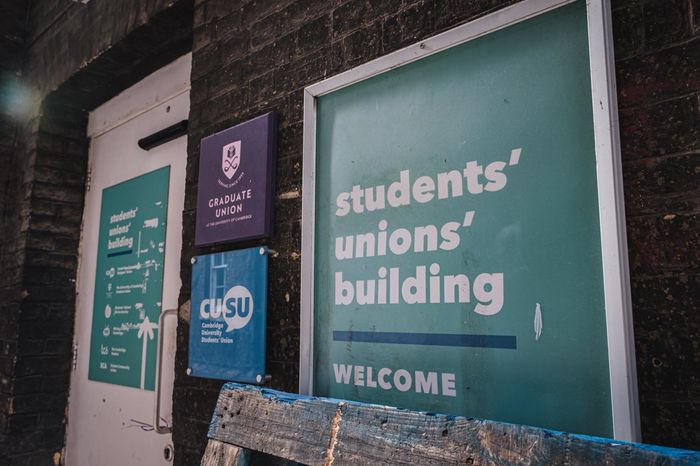Is a reading week for the weak?
Opinion Columnist Samuel Rubinstein and Vulture Editor Lotte Brundle face off over the SU’s reading week proposal

In this week’s head-to-head piece, Lotte Brundle and Samuel Rubinstein debate the merits of the SU’s reading week proposal, with Lotte arguing that we shouldn’t let “academic rigour” spill over into intellectual masochism whilst Samuel maintains that a reading week is ill-suited to the Oxbridge pedagogical model.
Lotte Brundle
For a long time now, the burnt-out run-down students of Cambridge have been clamouring for a justly deserved reading week, to no avail. Finally, it is set to be discussed by the SU but whether or not the students will get their wish is still very much up in the air. For years Cambridge has denied its students this privilege. In the work hard/play hard headspace that occupies many, if not all, students here, the idea of a reading week has been marked by many as simply that: weak.
“Once term gets going, it’s damn near impossible to catch up if you fall behind”
A reading week is something those other universities need to do, but not us, this institution seems to smarmily sneer. But nearly all other UK universities have a reading week for a reason: to give their students a break; time to think; to consolidate their learning. Some argue that, as Cambridge’s terms are shorter - a concentrated 8 weeks compared to the usual standard 12 weeks – we need a reading week less than other students, but I strongly disagree. The reality is that 12 weeks of work are being mercilessly squashed into nearly half the time; it’s no surprise then that many students struggle with chronic stress and devastating mental health issues while at Cambridge.
As an English student, the majority of my degree is reading and, when comforting the frankly gargantuan list that awaited me in the short break between Lent and Easter term last year, I felt completely overwhelmed. I was expected to read all of Shakespeare’s works over the break, “37 plays in 30 days!”, my supervisor eagerly gushed when I questioned the genuine possibility of this. Once term gets going, it’s damn near impossible to catch up if you fall behind. So, if you’re unwell for any reason, the Cambridge workload seems to spiral devastatingly out of control. The reading lists, too, seem to completely ignore the fact that many students need to work for financial reasons in the breaks, and don’t therefore physically have 37 consecutive days to spend on the Bard.
With the sheer quantity of reading that is expected of me here, especially as a student with a learning disability, I feel like a week to think, re-set, catch up and generally just enjoy living in Cambridge would be a huge game changer. Although I dream of a reading week however, I worry that the introduction of this may just be used as an excuse by faculty members to cram in even more reading, essays and deadlines – stretching our already exhausting 8-week term into a 9 week one. And honestly, I think if the Cambridge terms were any longer my head would explode from trying to consolidate the sheer quantity of learning.
When the University’s slogan is ‘academic rigour’, it often feels like they’re keener on having over-worked, unhappy, and frankly unhealthy students, than well, happy ones, and I don’t know about you, but I really need a break from the academic merry go round, because I’m starting to feel a little motion sick. Here’s hoping…
Samuel Rubinstein
Like “justice for college supervisors” or “defend education”, “reading week” is one of those vague, euphemistic slogans that Cambridge would be better off without. Nobody who uses the term really means it: every week in this town is a “reading week”, in theory if not always in practice. There is no point rocking up at the gates of Troy inside a translucent horse, which is why the illustrious sabbatical officers at the Students Union have, in an uncharacteristic fit of intellectual honesty, decided to change their branding to a ‘mid-term break’. Were they to go further, and campaign yet more candidly for a ‘Piss-About Week’, perhaps I’d be more sympathetic.
“A “reading week” cannot be magicked into existence out of nowhere”
It’s not too difficult to trace the process by which “reading week”, under whichever name, became the latest SU vogue. You matriculate at Cambridge and remain in touch with friends from home. Some are now students at red-bricks or (non-Oxbridge) Russells. They pour pestilence into your ear, titillating you with exotic tales of “life beyond the bubble”. They tell you all about their “reading week” – drugs, sex, rock ‘n’ roll – and you become ensnared.
Why don’t we have a reading week? you wonder. Of course, your friends neglect to mention that their terms are much longer than ours: five or so Piss-About Weeks between terms strikes me as a decent deal. They also neglect to mention that their work during term-time counts towards their degree: they don’t need to do very much, but what they do produce needs to be of high quality. So a “reading week” might make sense for them, and might fit comfortably within their system of higher education. But it doesn’t make sense for us.
The “reading week” agenda is being pushed in part because the SU is disproportionately made up of humanities students. Students whose degrees can arguably accommodate a ‘reading week’ therefore exercise disproportionate influence over SU proposals. Natscis in particular seem to be opposed to the idea, and have been frustrated by the SU's words in support for scrapping Saturday lectures last year.
A “reading week” cannot be magicked into existence out of nowhere. It must come from somewhere. And so it will mean shorter vacations, which will wreak all kinds of havoc: renegotiating staff and teaching contracts; creating problems with arranging outreach programmes and admission interviews; giving undergraduates a narrower opportunity to work and earn money (which we cannot do in term-time). There is, moreover, no escape from an obvious truth: that extending term-time will lead to an increase in rent, hitting working-class students the hardest. The SU, as ever, is waging its class war. But on which side?
 Features / Meet the Cambridge students whose names live up to their degree9 September 2025
Features / Meet the Cambridge students whose names live up to their degree9 September 2025 News / Student group condemns Biomedical Campus for ‘endorsing pseudoscience’10 September 2025
News / Student group condemns Biomedical Campus for ‘endorsing pseudoscience’10 September 2025 News / Tompkins Table 2025: Trinity widens gap on Christ’s19 August 2025
News / Tompkins Table 2025: Trinity widens gap on Christ’s19 August 2025 Science / Who gets to stay cool in Cambridge?7 September 2025
Science / Who gets to stay cool in Cambridge?7 September 2025 News / New left-wing student society claims Corbyn support11 September 2025
News / New left-wing student society claims Corbyn support11 September 2025










